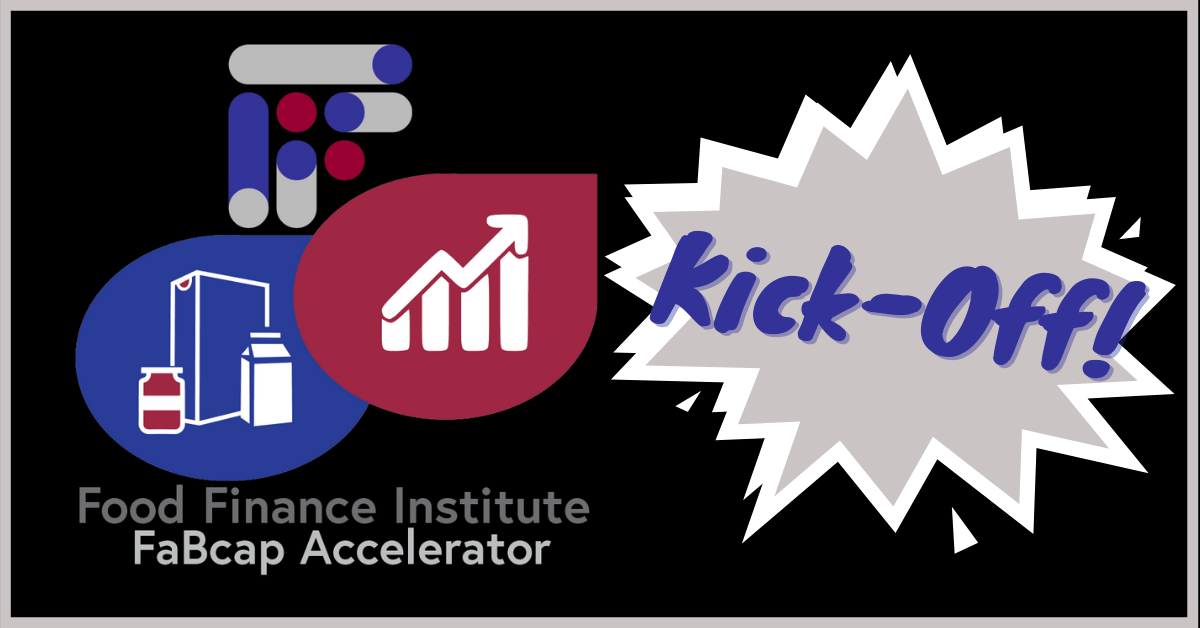Conscious consumers want to know where their food comes from and care deeply how it is produced. And as the negative effects of climate change become more apparent every year, they increasingly favor farmers who cultivate crops and manufacturers that produce packaged products in ways that are good for the planet. While plenty of shoppers held these values long before COVID-19, the pandemic has prompted many more to think about their food purchases in this light and desire closer relationships with farmers and food brands.
The fact that there is ever-expanding market value for sustainably produced food is great news for growers and manufacturers already embracing eco-forward practices. Sales of organic food, for instance, have soared in 2020, proving that consumers are still willing to pay more for organic values even despite a downturned economy. There has also been a run on locally grown and processed goods, beneficial for the climate because the food doesn’t need to travel far, especially those sold direct to consumer. This can be seen in the sharp increase in community-supported agriculture memberships this year, as well as the heightened interest in small, local grass-fed meat producers.
Farmers, too, have become more eco-minded. Regenerative agriculture, which focuses on restoring soil health and promoting diverse natural ecosystems, is not a new concept, but it has become much more mainstream in recent years. Farmers understand the ecological benefits of planting cover crops, not tilling, raising a variety of crops and integrating livestock, but they also experience benefits firsthand via healthier land, more bountiful yields and healthier, happier animals. When nature is allowed to work as designed, it’s a win all around.
Consumers are catching onto the regenerative movement as well, increasingly seeking out products produced in these ways. In fact, after a yearlong pilot program, the Regenerative Organic Alliance has launched its Regenerative Organic Certified program to help shoppers find finished products produced with concern for soil health and land management, animal welfare, and farmer and worker wellness.
However, even if consumers are hungry for food produced regeneratively—and willing to pay more for it—if the end product doesn’t taste great or fit their needs, they won’t buy. Shoppers who don’t know or understand the value of regenerative agriculture will be even harder to convince.
Leslie Cooperband, who co-founded Prairie Fruits Farm & Creamery with her husband Wes Jarrell, makes these points on the most recent Edible-Alpha® podcast. She explains that by operating a regenerative goat dairy and now transitioning their landscape to silvopasture—a type of agroforestry that integrates trees, prairie and grazing animals—they are “trying to create a model that’s incredible for the environment and also recognized in the marketplace. Those things have to be complementary. If they are not, it doesn’t matter what we do. If we can’t convince people our cheese is worth paying more for because we do these things, then the premise of the model is not robust.”
This is something all regenerative farmers and food brands that support regenerative agriculture should keep in mind. Furthering consumer adoption of these values and demand for foods produced regeneratively will require excellent products and solid education efforts. If food companies can deliver on both, they can capture the captive audience for sustainably made foods and convince even more consumers of their ecological benefits.
2020-2021 FFI FaBcap Accelerator Kick-Off
The Food Finance Institute is hosting a virtual industry kick-off event with keynote presentations, FaBcap 4 Investor Presentations, 2020-2021 FFI FaBcap business introductions and industry collaboration. Join us to engage in:
- Networking via curated connections
- Industry trends and key insights sharing
- FaBcap 4 Accelerator investor pitch presentations
- FFI FaBcap 5 Accelerator company introductions to industry
- Much more! Additional details to come.
And now, our roundup of the best food and beverage finance news, events and resources from around the web…
 Business Model Insights
Business Model Insights
- We’re putting our account on pause, because no one’s in the office…’ NatureBox CEO on pivoting in a pandemic and ‘work-from-home snacks’ (FoodNavigator-USA) Talk about a successful pandemic-promoted pivot: NatureBox’s office snacks business was going gangbusters until COVID-19. See how the company morphed again to survive this recent blow.
- For the food industry, a difficult juggle with real-world consequences: uphold food safety standards while protecting your employees from Covid-19 (The Counter)
- How can industry help feed students returning to school online and in person (FoodNavigator-USA)
 Raising Capital
Raising Capital
- The Oatly Controversy, Explained (Vice) When a firm tied to deforestation invested in the sustainability-touting oat milk company last month, fans began calling for a boycott. Oatly’s conundrum is a challenge faced by many impact brands when courting capital to scale.
- Is Crowdfunding a Good Option for Businesses During the Pandemic? (Forbes)
- Strategies to maximize boards for fast growth, successful fundraising (FoodNavigator-USA)
 CPG/National Brands
CPG/National Brands
- Shoppers Miss Grocery Store Samples. Brands Miss Them More (Eater) Sampling won’t likely return to normal before a widespread COVID-19 vaccine, but the pandemic may affect the industry much longer. Some say it’ll reshape everything and make it harder for food brands to launch and scale in the traditional way.
- Big CPGs struggle to gain market share during COVID-19 despite sales boost (Food Dive)
- As food brands experiment with DTC, seamless customer service can’t be overlooked (Food Dive)
 Market Trends
Market Trends
- Bigger hauls, fewer choices: How the pandemic has changed our grocery shopping habits forever (The Washington Post) “Americans are spending more, yet increasingly they are being offered fewer choices, both online and in person, slowing a years-long trend toward innovations that put ‘good for you’ and ‘environmentally friendly’ spins on established and much-loved products.”
- Consumer desire for ‘resiliency’ during pandemic opens door for functional products, says Hartman Group (FoodNavigator-USA)
- Consumer trends shifting toward health and wellness, ADM finds (Food Dive)
 Farming and AgTech
Farming and AgTech
- The pros and cons of government involvement in carbon credit markets (AgFunder News) Storing CO2 in the soil can be a much-needed extra revenue stream for farmers, but there are upsides and downsides of the government’s involvement.
- Farmers and ranchers across the US deliver letter to House Select Committee on the Climate Crisis (The Cattle Site)
- What’s the relationship status between farmers and USDA? It’s complicated (Successful Farming)
 Deals/M&A
Deals/M&A
- Cargill, Soil Health Institute team up to find out if there’s a business case for soil health systems (AgFunder News) Improving soil health is worthwhile endeavor, but is it worth it financially for farmers? To find out, SHI, Cargill and the National Association of Conservation Districts are evaluating the profitability of soil health management systems.
- Sovos Brands acquires better-for-you pancake brand Birch Benders (Food Dive)
- Good Karma Foods buys company back from Dean Foods (DairyReporter)
 Virtual events
Virtual events
- Edible-Alpha® Consultant Huddle: 9/14 at 1 p.m. CDT (Get notes from the last huddle here.)
- Edible-Alpha® Entrepreneur Huddle: 9/14 at 2:30 p.m. CDT (Get notes from the last huddle here.)
- Food Automation and Manufacturing: 9/14–9/16
- Spark Change Mission-Driven Business Community Event: 9/16
- AgTech NEXT: 9/22–11/10
- FFI FaBcap Accelerator Kick-Off: 9/24
- Spark Change Modern Health Community Event: 10/7
- Produce Marketing Association Fresh Summit: 10/13–10/15
- Food & Nutrition Conference & Expo: 10/17–10/20
- Food Safety Summit: 10/19–10/22
- Spark Change Organic & Regenerative Agriculture Community Event: 10/28
- PACK EXPO Connects: 11/9–11/13
- Spark Celebration: 11/10–11/11
In-person events
- Kosherfest: 11/10–11/11 in Secaucus, NJ
- American Food Manufacturing Summit: 11/16–11/17 in Chicago, IL

